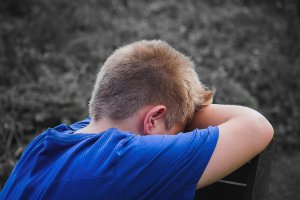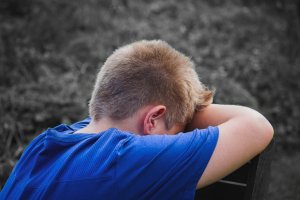Religious organisations and communities are frequent targets of abusers.
Religious institutions are often well-placed and strongly motivated to cover up incidents of sexual and physical abuse.
We work to hold these organisations to account and get justice for abuse victims and survivors.
Many religious organisations enjoy a close relationship with the establishment and tend to see themselves as above the law. This can increase the risk of abuse, prevent perpetrators from facing justice, and impede efforts to support and compensate victims and survivors of abuse.
Those intent on abuse are often attracted to religious institutions. Such organisations give access to, and sometimes extreme control over, numerous children and vulnerable adults.
When abuse does occur, religious organisations often act to protect the reputation of the institution above the rights of the victim. They may pressure the victim to stay silent and move the perpetrator to somewhere unaware of their reputation.
Many religious institutions also have influence and connections that enable them to evade justice and scrutiny, often for decades.
All forms of abuse, be they sexual, physical or psychological, can cause serious harm. Victims of abuse in religious settings have suffered physical and mental health problems, including addiction, self-harm and suicide.
No religious organisation is immune to abuse. That's why we work at the national and international level to hold religious organisations to account for safeguarding failings, and to ensure victims and survivors can get justice.
Take action!
1. Share your story
Tell us why you support this campaign, and how you are personally affected by the issue. You can also let us know if you would like assistance with a particular issue.
2. Write to your MP
Ask your MP to support our work to end abuse in religion settings
3. Join the National Secular Society
Become a member of the National Secular Society today! Together, we can separate religion and state for greater freedom and fairness.
Latest updates
NSS: Government commitments on abuse may not go far enough
Posted: Wed, 24 May 2023 12:43
The National Secular Society has welcomed government commitments to act on child sexual abuse but warned they may not go far enough.
Yesterday the Home Office published its response to the final report of the Independent Inquiry into Child Sexual Abuse (IICSA). Much of IICSA's work concerned abuse in religious settings.
The government's response said it would act on almost all of IICSA's recommendations.
While the NSS supports these recommendations, NSS vice president Richard Scorer, a solicitor who represents victims of child abuse, has warned they may not be enough to protect children from abuse in religious settings.
Mandatory reporting
IICSA recommended a new criminal offence for those working with children, or in a position of trust, to fail to report disclosures or witnessing of child sexual abuse.
Religious institutions have frequently failed to report on child sex abuse or even covered it up. Last week, an independent review into an abuse case within the Church of England revealed senior clergy, including a current and former member of the bishops' bench in the House of Lords, repeatedly failed to act on disclosures from the victim.
Scorer said because witnessing of child abuse and disclosure from victims or perpetrators are rare, a mandatory reporting law may be ineffective unless it also ensures reporting of reasonable suspicions of abuse.
Yesterday the government launched a consultation into implementing the new mandatory reporting duty.
Time limits for child abuse personal injury claims
The NSS has supported IICSA's recommendation to remove the three-year limitation period for personal injury claims brought by victims and survivors of child sexual abuse. The inquiry said cases should proceed irrespective of time delay unless the defendant can prove that the delay means a fair trial is impossible.
Scorer said this would be "an important win" because the average time delay between abuse and a survivor's disclosure is 22 years. Scotland abolished the three year time limit in 2017.
The government said courts can already disapply the time limit "if it considers that it is just an equitable to do so". It said it will publish a consultation later this year exploring how existing judicial guidance in child sexual abuses cases can be strengthened, as well as setting out options for the reform of limitation law.
Redress scheme for victims and survivors
IICSA recommended the establishment of an "accessible and straightforward" redress scheme for victims of child sexual abuse in England and Wales that is "sensitive to the needs and vulnerabilities" of claimants. It would be state funded, but with "voluntary contributions" from organisations implicated in abuse.
Scorer criticised such a scheme as "the worst of both worlds", because it would mean the burden would fall on taxpayers, rather than institutions responsible. He also pointed out that religious institutions such as the Catholic Church and the Jehovah's Witnesses "fight survivors tooth and nail through the courts" to avoid paying just compensation, so are unlikely to voluntary contribute to payments.
The government said it would launch a redress scheme after public consultation.
NSS vice president: "Crucial" that law has no religious exemptions
Scorer said: "We have long argued for a law to require the reporting of suspected child abuse, so we welcome the government's commitment to implementing a mandatory reporting regime.
"It's crucial that such a law contains no exemptions for faith-based settings, including disclosure in the confessional – a point the Independent Inquiry into Child Sexual Abuse was very clear on.
"Religious opt-outs would fundamentally undermined measures to protect children from harm. We'll be lobbying to ensure that does not happen."
Mandatory reporting of child sexual abuse to become law
Posted: Tue, 4 Apr 2023 08:01
The National Secular Society has welcomed government plans to introduce a legal requirement to report child sexual abuse.
Under the proposals announced this week, people who work with children in England would be obliged to report suspicions of abuse to authorities. Those who failed to do so would risk being prosecuted.
The move follows the recommendation of the Independent Inquiry into Child Sexual Abuse (IICSA), which published its final report last year.
IICSA also recommended that mandatory reporting should "not be subject" to religious exceptions. It said abuse must be reported even if it is revealed during "sacramental confession", despite objections from religious groups.
The government has not yet confirmed whether it will follow these recommendations.
More than one in ten survivors of child sexual abuse who shared their accounts with the inquiry's Truth Project reported sexual abuse in a religious institution.
The National Secular Society has persistently campaigned for the introduction of mandatory reporting of abuse, as well as the independent oversight of church safeguarding, abolition of statutes of limitations, and financial redress for survivors.
Mandatory reporting laws have been adopted in some form by most countries worldwide, including 86% of European nations.
NSS vice president: "Mandatory reporting is essential and long overdue"
NSS vice president Richard Scorer, a lawyer specialising in child and vulnerable adult abuse who represented the largest group of survivors in IICSA, said: "Mandatory reporting is essential and long overdue- survivors have been campaigning for it for years.
"However, with any mandatory reporting law the devil is in the detail, and it is imperative that the law is effective not just a gesture. This means including criminal penalties for non-reporting of reasonable suspicions of abuse. This is particularly important in insular religious settings where pressures against direct disclosures of abuse are so strong. Any watering down of what is needed to keep children safe will be a dreadful missed opportunity".
Richard Scorer has written more about mandatory reporting and IICSA's other recommendations here.




